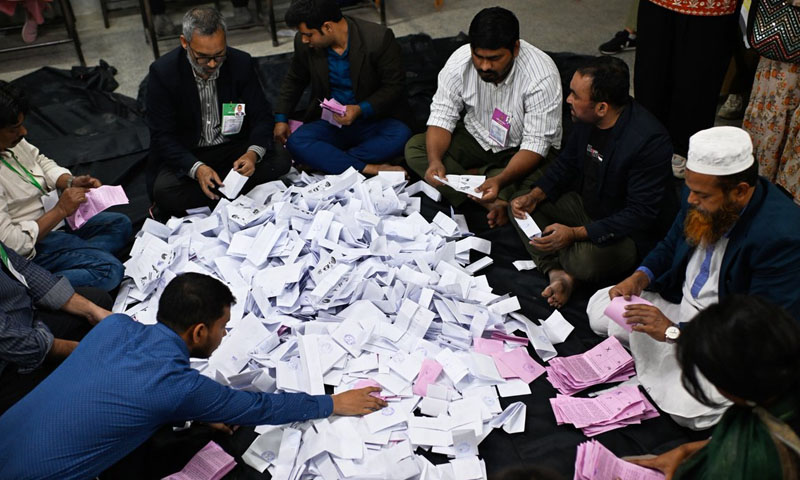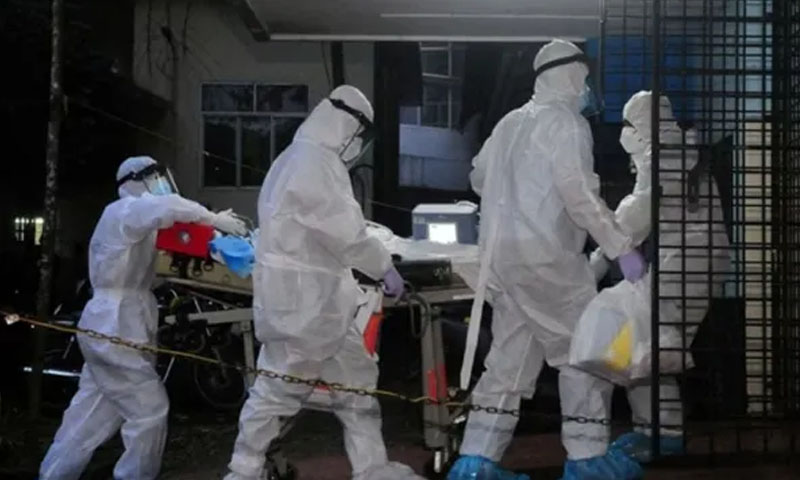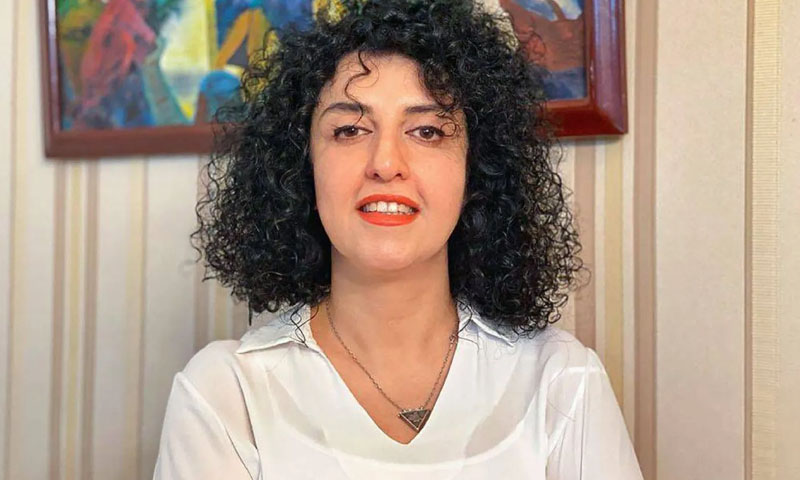- Web Desk
- Today
Rare earths: US diplomat summoned over Greenland ‘interference’

COPENHAGEN: Denmark summoned the US charge d’affaires Wednesday after reports of attempted interference in Greenland, a Danish autonomous territory which US President Donald Trump wants to take over.
Read more: Macron to visit Greenland in display of European unity
Since returning to the White House in January, Trump has repeatedly said America needs the strategically located, resource-rich island for security reasons, and has refused to rule out the use of force to secure it.
Danish public television network DR on Wednesday reported that at least three US officials close to Trump have been observed in Greenland’s capital Nuuk recently trying to identify people for and against a rapprochement with the United States.
It said they also tried to gather information on issues that have created tension between Greenland and Denmark and which could be used to present Denmark in a bad light.
These include the forced removal of Greenlandic Inuit children from their families, as well as the forced contraception of at least half of all fertile women, mostly conducted between the 1960s and 1980s.
CRITICAL MINERALS
Rare earths — an important subset of critical minerals — have seemingly become the “actual sole focus” of global players, as hi-tech industries depend on these for their survival.
And Trump wants to dominate and control the supply, currently in the hands of China.
Read more: Rare earths: China’s trump card in trade war with US
In the emerging developments, Canada and Germany on Tuesday signed a declaration “to deepen cooperation to secure critical mineral supply chains”.
“Earlier this year at the G7 Summit in Kananaskis, Alberta, Prime Minister [Mark] Carney introduced the Critical Minerals Production Alliance – a Canada-led initiative that leverages trusted international partnerships to enhance critical mineral supply chains for collective defence and advanced technology,” reads a statement issued at the website of the Canadian premier.
It added, “Today, in Berlin, Canada and Germany signed a Joint Declaration of Intent to deepen co-operation to secure critical mineral supply chains, increase collaboration on research and development, and co-fund new critical mineral projects that contribute to a range of industries – from electric vehicle manufacturing to defence and aerospace.”
FOREIGN ACTORS
“We are aware that foreign actors continue to show an interest in Greenland and its position in the Kingdom of Denmark. It is therefore not surprising if we experience outside attempts to influence the future of the Kingdom in the time ahead,” Foreign Minister Lars Lokke Rasmussen said in a statement to AFP.
“Any attempt to interfere in the internal affairs of the Kingdom will of course be unacceptable,” he said, adding that he had “asked the ministry of foreign affairs to summon the US charge d’affaires for a meeting at the ministry”.
The United States has not had an ambassador in Denmark since Trump returned to the White House in January.
The meeting with the charge d’affaires, a term used for an acting ambassador, was due to take place later Wednesday and was of a “preventative” nature, Rasmussen told DR.
“I think it’s really good to strengthen resilience both in Greenland and in Denmark, to know what we might potentially face,” he said.
The vast majority of Greenland’s 57,000 people want to become independent from Denmark, but do not wish to become part of the United States, according to a January opinion poll.
Greenland has repeatedly insisted it is not for sale and will decide its future itself.
Marc Jacobsen, an associate professor at the Royal Danish Defence College, told AFP the revelations in the DR report “remain a bit vague, but given the context and considering the level of reaction, they should be taken seriously.”
In May, the Wall Street Journal reported that US intelligence agencies had been ordered to find out more about Greenland’s independence movement and opinions on American exploitation of resources.
According to the newspaper, intelligence agencies had been asked to identify people in Greenland and Denmark who support US objectives.
NATO MEMBER? IT DOESN’T MATTER
Danish Prime Minister Mette Frederiksen reacted angrily to that report, saying: “You cannot spy against an ally.”
Like the United States, Denmark is a founding member of NATO and has recently fought alongside America in its wars in Afghanistan and Iraq.
In March, US Vice President JD Vance made an uninvited visit to Greenland that was widely seen as a provocation both on the island and in Copenhagen.
Read more: Vance says Greenland will be more secure under US than Denmark
He was initially due to tour several towns over the course of a few days, but following angry reactions across Europe, he shortened his itinerary to a one-day visit of the US Pituffik military base.
During a speech there, Vance castigated Denmark for not having “done a good job by the people of Greenland”, alleging it had neglected security.
The Pituffik base is an essential part of Washington’s missile-defence infrastructure, its location putting it on the shortest route for missiles fired from Russia at the United States.
The Arctic has gained geostrategic importance as the race for rare earths heats up and as melting ice caused by global warming opens up new shipping routes.
Read more: Trump to China: Give magnets or face 200% tariffs
Copenhagen in January announced a $2-billion plan to boost its military presence in the Arctic region.
Ahead of Greenland’s March 11 general election, Denmark’s intelligence service said it was concerned about possible foreign interference, particularly from Russia, but it said no attempts were ever detected.
PUBLIC REACTION
As soon as the news about summoning the US diplomat over the Greenland issue emerged, people reacted strongly against the United States and Trump.
Here are some of the examples from X where the US is described as threat to Europe.
Some say Europe must plan for the worst.
Trump is also accused of copying the Russian playbook.





